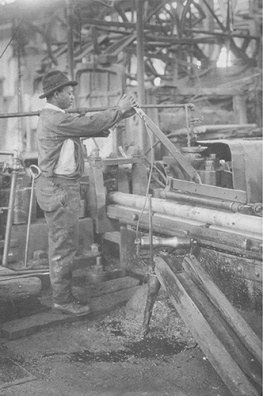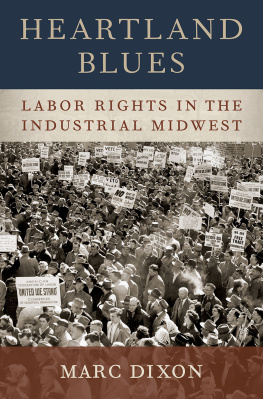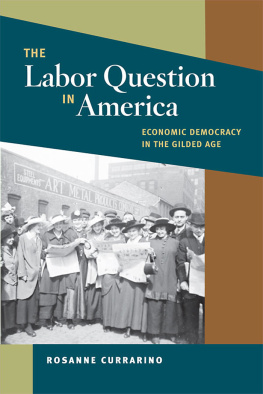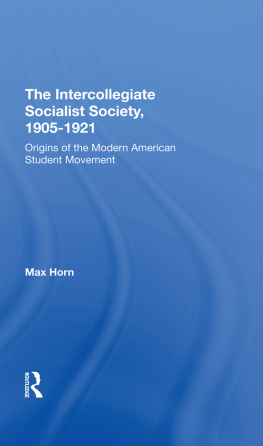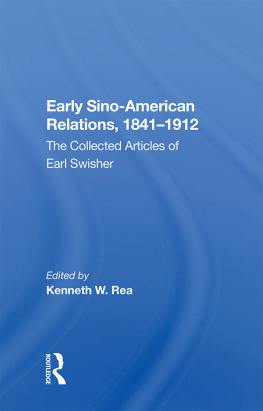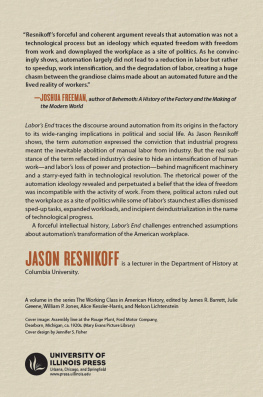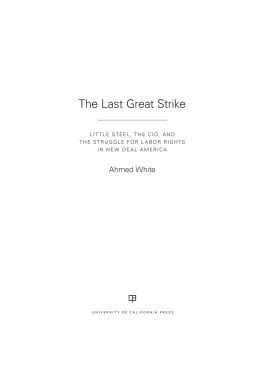1997 The University of North Carolina Press
All rights reserved
Manufactured in the United States of America
The paper in this book meets the guidelines for permanence and durability of the Committee on Production Guidelines for Book Longevity of the Council on Library Resources.
Library of Congress Cataloging-in-Publication Data
McCartin, Joseph A. Labors great war: the struggle for industrial democracy and the origins of modern American labor relations, 1912-1921 / Joseph A. McCartin. p. cm.
Includes bibliographical references (p.) and index. ISBN 0-8078-2372-4 (cloth: alk. paper). ISBN 0-8078-4679-1 (pbk.: alk. paper) 1. Labor movement United States History 20th century. 2. Industrial relations United States History20th century. 3. Trade-unions United States History20th century. 4. Reconstruction (1914-1939) United States. I. Title.
HD8072.M189 1997
331.01120973DC21
97-9364
CIP
08 07 06 05 04
6 5 4 3 2
This book was digitally printed
Acknowledgments
The real joy of writing this book was that it introduced me to scores of generous people and encouraged me to lean on faithful friends, colleagues, teachers, and family members without whose encouragement it never would have been written. Their help made the experience not only bearable but deeply enriching as well. So I take pleasure in offering them my thanks.
First, I would like to acknowledge several institutions. A Presidents Summer Fellowship and an incentive grant from the State University of New York at Geneseo helped fund some of the research for this project. So did grants from the American Philosophical Society, the Fund for Research on Dispute Resolution, and the Bureau of Labor and Management Relations and Cooperative Programs of the US. Department of Labor. The Hagley Museum and Library, the Herbert C. Hoover Presidential Library Association, and the Rockefeller Archives Center provided grants for visits to their collections. But, above all, I am grateful to the National Endowment for the Humanities. Its support was indispensable to the research and writing of this book.
From beginning to end, the preparation of this manuscript has been made easier by the professionalism of others. Numerous dedicated archivists helped me navigate through the research that informs this study. Of them, I would like to single out Pete Hoefer of the George Meany Memorial Archives and the capable staff of the National Archives in Washington, D.C., including Bill Creech, Tab Lewis, and especially Jim Cassedy. Jim expertly guided me through the records of the National War Labor Board, helped me find photographs for this book, and tirelessly answered my countless queries. The staff of the University of North Carolina Press has been most gracious, and they have made the task of bringing this book to print easier than I could have imagined. I especially thank executive editor Lew Bateman, his assistant Mary Laur, copyeditor Nancy J. Malone, and editor Pamela Upton for their help.
As I prepared this book over the years, a number of scholars generously shared their comments with me about portions of it that they read or heard in the form of conference papers, talks, draft chapters, or articles. For their insights, I thank Eric Arnesen, Ray Boryczka, John Bracey, David Brody, David Brundage, Cecelia Bucki, Willy Forbath, Pete Forcey, Alan Frank, Larry Gerber, Gary Gerstle, Julie Greene, Maurine Greenwald, Howell John Harris, Victoria Hattam, Thomas Kessner, Daniel Letwin, Nelson Lichtenstein, David Montgomery, Wendy Mink, Mary Nolan, Elisabeth Israels Perry, my longtime friend Doug Reynolds, Stanley Shapiro, Kitty Sklar, Judith Stein, and Shelton Stromquist. Several scholars deserve special mention. Alice Kessler-Harris helped me to see where I was going with this project before I myself knew it, and she encouraged me at an early stage to strive for my own scholarly voice. David Montgomery showed me great kindness as I formulated a thesis that challenged his own work in some respects. Michael Kazin urged me to think about the big picture as I made my final revisions of this book. Eric Arnesen and Dan Letwin helped me hone my understanding of labor history in the South. Dana Frank offered welcome support over the years. And Julie Greene compared notes with me about our mutual interests in Progressiveera labor and politics. My colleagues and students at the University of Rhode Island and the State University of New York at Geneseo also aided me in various important ways. I especially thank C. R. Bailey, Chen Jian, David Tamarin, and Bob Weisbord. The support of all these people taught me what it means to be part of a scholarly community.
I also offer heartfelt thanks to those who read through the penultimate version of this manuscript and offered valuable advice. I am especially indebted to Robert Zieger for his close and searching reading of my work. He helped me refine my argument, encouraged me to be more direct in my prose, and brought several important citations to my attention. His help was crucial and made the final product a better book. Similarly, my dear friend Colin J. Davis took time from the completion of his own book to read my manuscript thoroughly and to suggest some important clarifications. His generosity was inspirational.
Two other individuals read my manuscript more than onceand after watching its author wrestle with it for years. Without their help, this book would never have been. In many ways the seed for this project was planted in an undergraduate paper that I wrote for Nick Salvatore many years ago. At that time, I came to admire the passion for history that Nick brought to the classroom, to his students work, and to his own writing. His example first led me to consider graduate school. Without his warm encouragement, sound advice, and friendship, Im not sure that I would have finished this book. Finally, my graduate adviser, Melvyn Dubofsky, nurtured this project since I first began it as a dissertation under his direction. Mel expressed faith in me as I worked on it over the years, offered critical help at every stage, and provided his own fine example of disciplined scholarship as a guide for me. I am most fortunate to have studied under such an exemplary mentor.
Nor would this book have been possible without the help of family and friends. Doug Ambrose, Ken Millen-Penn, Ben McTernan, Jennifer Miller, and Thorn Wermuth read parts of this work, talked with me about it, or simply stood by me when I struggled with it. My aunt Dorothy did not live to see this book, but she never doubted that I would finish it and so helped me to believe the same. My siblingsAnne, Marybeth, Michael, Jude, and Jimmy aunt Alice, and my extended family of in-laws offered love and support. But I will never be able to thank adequately those to whom I dedicate this book, my parents, Marybeth and Joe McCartin. My mother, who read my undergraduate papers when I brought them home each summer, was my first real scholarly audience; she has remained my most sympathetic supporter. My father, who carefully edited my manuscript, became my most reliable reader; his sharp eye helped me better to understand and to express my thoughts. This book goes to them with much love. Finally, this project gave me my most precious gift. Writing it led me to my wife, Diane Reis. Her love guided me through its completion and helped me to see beyond it to the beginning of our life together.

